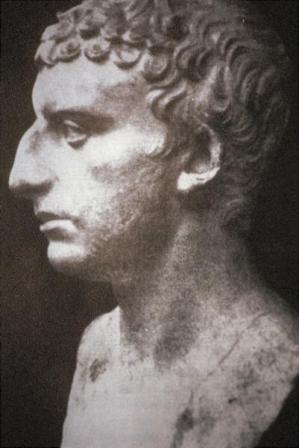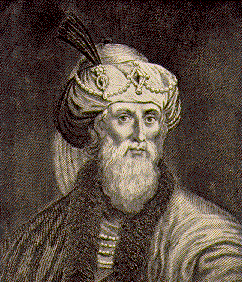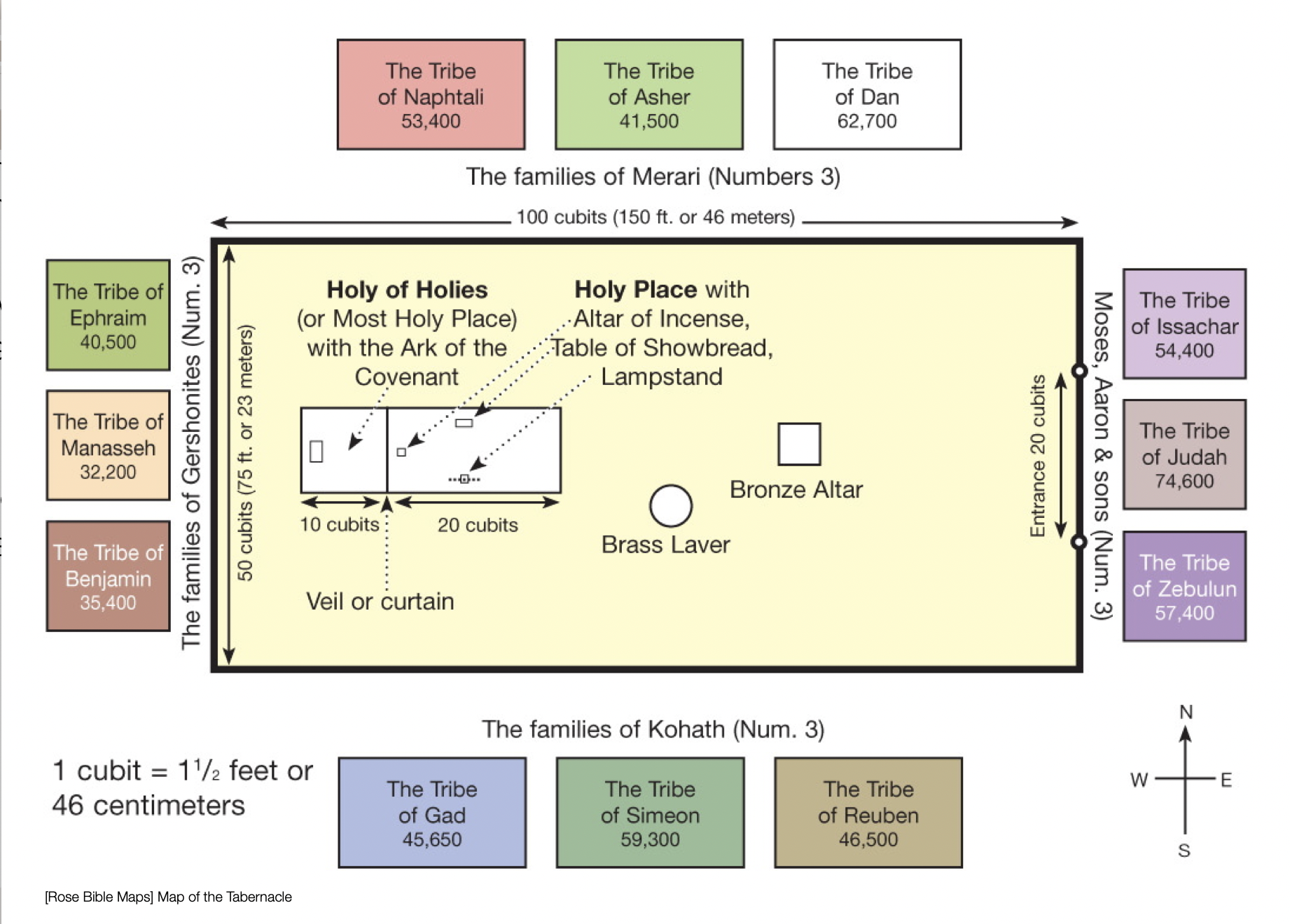VISIT OUR FACEBOOK PAGE!
Flavius Josephus
The great Jewish historian Flavius Josephus, known simply as Josephus, left an indelible influence on the history of the Jewish people, particularly around the time of Christ. Josephus was a contemporary of Jesus, yet wrote from a Roman persuasion. One of the major criticisms of Josephus is that he cozied up to the Roman elite, leaving behind his Jewish brethren. At one time a Pharisee, another a Jewish general, and yet another a Roman patron, Josephus was a man of
Interestingly enough, Josephus is earliest author outside of the Bible to mention Jesus. In his seminal work, Antiquities of the Jews, written in about 94 CE Josephus talks about Jesus. The passage in which he refers to Jesus is commonly known as the Testimonium Flavianum.
3. (63) Now, there was about this time Jesus, a wise man, if it be lawful to call him a man, for he was a doer of wonderful works-a teacher of such men as receive the truth with pleasure. He drew over to him both many of the Jews, and many of the Gentiles. He was [the] Christ; (64) and when Pilate, at the suggestion of the principal men amongst us, had condemned him to the cross, those that loved him at the first did not forsake him, for he appeared to them alive again the third day, as the divine prophets had foretold these and ten thousand other wonderful things concerning him; and the tribe of Christians, so named from him, are not extinct at this day.
(The Antiquities of the Jews, Book 18, Chapter 3. From The Works of Josephus, translated by William Whiston Hendrickson Publishers, 1987)
Josephus also believed in the theory that the Nephilim were fallen angels. This is clearly stated in Josephus' Antiquities of the Jews. Josephus, unknowingly, also attacked the theory which supposes the "sons of God" were descendants of Seth. In chapter 3 of The Antiquities Josephus talks of the sons of Seth.
He praises Seth himself in chapter 3 saying; "Now this posterity of Seth continued to esteem God..".
However, Flavius Josephus goes on to talk of Seth's descendants straying from the path of their forefathers.
"...but in process of time they were perverted, and forsook the practices of their forefathers; and did neither pay those honors to God which were appointed them, nor had they any concern to do justice towards men."
Immediately after his depiction of the degradation of Seth's line, Josephus talks about the incident in Genesis.
"For many angels of God coupled with women, and begat sons that proved unjust, and despisers of all that was good, on account of the confidence they had in their own strength; for the tradition is, that these men did what resembled the acts of those whom the Grecians call giants."
A fascinating comparison is made in this passage to the Greek gods. Josephus states the Nephilim performed acts which were equivalent to the acts associated to the gods of Greek mythology.
The obvious question raises a very interesting scenario.
Were the Greek gods and Greek mythology grounded in historical stories of those Nephilim who had migrated to ancient Greece in the days of Noah?
The evidence may suggest just such a thing.
By all accounts, the Nephilim possessed divine, almost magical, powers. They were extremely powerful, smart and very influential. The Nephilim ruled over man while cohabitating with humanity. They took human women as their own and established their own offspring.
The Nephilim are strikingly similar to the Greek mythological gods, and seem to provide a foundation upon which such myths may have been built. They were certainly half-divine, half-human beings.
Josephus pictures Noah standing up to the Nephilim of his day, urging them to change their ways and pursue God. However, Josephus states the Nephilim did not listen to Noah. Noah eventually fled the land with his family in fear of his life. Perhaps it was during this exiled period which Noah built the ark.
In any case, Flavius Josephus makes his opinion clear on the subject. The writings of Josephus were also in line with the prevailing opinions of ancient Israel .
The opinion was the "sons of God" in Genesis were, in fact, fallen angels. The offspring they produced, the Nephilim, were of such a wicked nature, all of mankind was corrupted by them.
Josephus also believed the Nephilim were remarkably powerful and intelligent, and that they provided a historical basis for the Greek mythological belief system.
Though the accuracy of Flavius Josephus has often been debated, as he often wrote to please certain audiences, he does provide valuable insights into the culture and beliefs of his era.
Share Your Thoughts on Josephus' View of the Nephilim. Do you study Josephus? Are you interested in his works? What are your thoughts about the Nephilim? Click on the link above to give us your insight, thoughts, comments, and questions!
FLAVIUS JOSEPHUS STUDY RESOURCES
The Flavius Josephus Home Page - josephus.org
Back to Flavius Josephus
Back to the Nephilim
Back to Home Page
Recent Articles
-
The Tabernacle
Feb 27, 25 04:47 PM
The Tabernacle was where Yahweh met with his people before the First Temple was built. It was also called the Tent of Meeting. -
The Tabernacle of Moses
Feb 19, 25 09:50 AM
The tabernacle of Moses was built by Moses, per instruction from God, during the Exodus out of Egypt. It represented God's presence amongst His people. -
The Ark of the Covenant
Feb 19, 25 09:46 AM
The Ark of the Covenant is one of the most mystifying objects in all of human history. It's power was so great that Israel often carried it to the front lines. -
King David of Israel
Feb 19, 25 12:51 AM
The story of King David of Israel is a rags-to-riches tale of the family runt rising to national King. King David would become Israel's greatest king. -
The Nephilim
Feb 15, 25 10:35 PM
Were the Nephilim byproducts of fallen angels and women? Enoch wrote it was so, as did Moses. What mysteries lie buried in the pages of the Old Testament? -
In the Days of Noah
Feb 15, 25 10:32 PM
Jesus stated that in the last days it will be as in the days of Noah. The days of Noah were some of the strangest the world has ever seen. -
Jerusalem
Feb 11, 25 06:13 PM
A thorough dive into the city of Jerusalem and its rich, vibrant and ancient history. -
The History of Israel is explored from Genesis to Revelation.
Dec 31, 24 11:55 AM
Explore the history of Israel based on the Biblical account from Genesis to Revelation.
SAMUEL the SEER
Now Available in Print & eBook on Amazon!!
POPULAR TOPICS
Learn more about these popular topics below. The Bible is full of fascinating stories, characters and mysteries!
BIBLE MAPS
Explore the land of the Old Testament! View these maps of the Bible.











